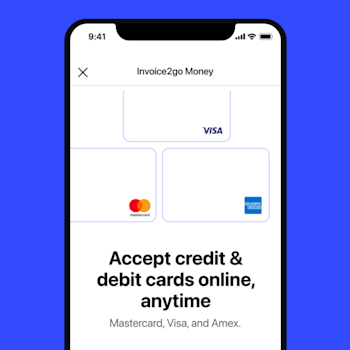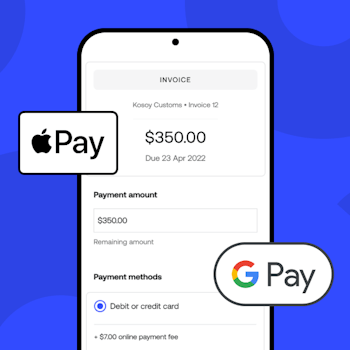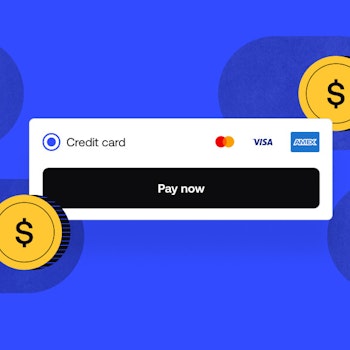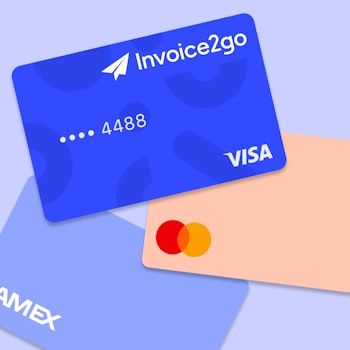
Lauren Owens poured a lifelong passion for wellness and design into a lasting career
Self-employment is on the rise. 30% of Americans now work for themselves or another independent professional. Whether this movement stems from a life-long dream or economic necessity, more are focusing on self-reliance and carving out their own career paths.
We get it. Self-employment can lead to greater job satisfaction, flexibility, and financial stability. On top of this, small businesses and self-employed professionals are central to their communities’ unique character.
These go-getters make significant contributions to innovation and create unique, lasting emotional connections with their customers. Also, while many associate self-employment with local businesses, multinational corporations depend on independent contractors and freelancers for their success.
At Invoice2go, a Bill.com company, our mission is to empower small businesses and self-employed professionals like you. We celebrate your contributions and want to share the stories about your challenges and triumphs.
Meet a small business owner and Invoice2go subscriber that we’re continually inspired by: Lauren Owens. She’s a feng shui interior designer, ergonomist, and founder of Commercial Interior Services. For the past 20+ years, she’s been able to combine her passions for wellness and design into a successful business that serves a variety of industries.
She’s showcased her design talents on HGTV’s Look What I Did and has made appearances on Fox, Bravo, and other networks. After establishing her business in Orange County, California, she expanded internationally and now has a hub in Paris, France.
We visited her in her Orange County studio in early 2020 and recently spoke to her again via Zoom. Like many self-employed professionals, her road to success has had many twists and turns. Read her inspirational story to learn key takeaways useful for any independent professional:
“I didn’t choose the self-employed route. It chose me.”
After attending the New York School of Interior Design and having some success in winning clients, Lauren found herself working for a design firm back in her home state of California. . .
. . . until it went bankrupt.
Rewind a few years. While still a student, Lauren started working for a contractor and tenaciously labored to learn everything possible hands-on. “I was hungry,” she explained.
She began redesigning and renovating boutiques and got jobs on the famed avenues of Manhattan. She had the benefit of a solid partnership: the ambitious contractor she worked with told her she could design anything because he could build it. Soon she was getting referrals and calls for more business. “I was 19, and it was crazy,” she laughed.
Lauren’s creativity was tested early on. A physician contacted her to renovate a small office. They requested a seating area for 6-10 people despite the office’s tiny size and the fact that a large column sat in the center of the room.
The client even laughed at this request, saying it was impossible to design so much seating in such a small area.
Still, drawing from experience with Manhattan’s compact boutiques, she remembered a shoe store she had helped renovate. She carefully drew up a circular seating area around the center column that… successfully sat 10 people.
“But I didn‘t know what to charge!”
With the design conundrum settled, a new problem arose. Lauren had no idea what to charge her new client.
After careful consideration and a desire not to sell herself short, she presented the physician with a number – which, for her, was significant. To her delight, they accepted. Lauren recalls, “I was like, ‘Whoa! This is kind of fun.'”
Eventually, Lauren’s time in NYC came to an end. She knew her home was in California. After graduation, she packed her bags and passion for commercial design – and headed back West.
“I didn’t want my work to look like everyone else’s.”
Returning to the Golden State, Lauren knew she didn’t want to fall into the humdrum rhythm of a 9 to 5. Still, since she didn’t have the resources to start a new business, she took a job at a design firm.
Not wanting to stagnate, Lauren connected with a leading furniture dealership and worked to continue expanding her sales and design skills. During this time, she also built up a handful of private clients on the side.
Then, the day came: The company Lauren worked for announced bankruptcy.
Instead of panicking or despairing, however, Lauren made a plan to act quickly. She was in the process of closing valuable sales with eight clients and didn’t want to lose that commission.
Immediately, she reached out to the clients and successfully convinced five out of eight to place their orders through another dealer. She persuaded that dealer to process the sales by offering a sizable 30% of the commission.
From there, she never looked back. Without startup money and only the relationships she’d built in her career, she had unexpectedly struck out on her own.
“If you follow through and pay attention to every detail, you’re going to build a reputation – and success will follow.”
Lauren built her office furniture business almost entirely on referrals.
Her businesses’ beginnings precede social media, and she didn’t even have an official website for the first 10 years. It was all about continuously providing quality and paying attention to detail.
After feeling more established, she expanded her business to incorporate her passion for feng shui, health, and wellness. Her mission: create beautiful spaces that support workers’ health and productivity.
Lauren defines Feng Shui in straightforward terms: “I call it feeling good in your body.” She gives practical examples of how our environment affects our mood and ability to work well – whether we’re conscious of it or not.
First, if you sit with your back to a door, chances are you’ll feel uncomfortable. Why? You’ll likely sense people walking by and continually turn your head. Every time this happens, you lose focus. Since we spend so much of our lives at work, over time, this could even lead to neck pain or other discomforts.
Also, say you enter an office or restaurant. Perhaps you don’t know why, but you just don’t want to go back. Using the principles of feng shui environments can be transformed so that people will be happier to be there.
Lauren’s delighted more people are becoming aware of the importance of good design. However, she points out how little people thought about this at the start of her career. She explains, “Now I’m so happy that there are so many tools and people are more educated. They know about the core and posture. It’s my passion to help people be more productive and feel good in their space.”
“We can choose to work 9-5 for someone, or we can choose to work for ourselves 24/7.”
One of Lauren’s favorite parts of being self-employed is that time is now her choice.
She explains, “Believe it or not, 24 hours for ourselves is less stressful working 9-5 at a place you’re not happy with.” She loves having flexibility and laughs, “And you can never get fired!”
Lauren doesn’t have a particular moment when she felt successful in her business. She tells us, “You never know what the future is – ever. You can live in financial fear until you say, ‘Oh my God! It’s been three years, five years, ten years. I’m still doing this, and I still have clients.'” She sights the years she’s managed to stay in business as the ultimate sign she’s done the right thing and has truly established herself as an expert.
As a designer and ergonomist, Lauren has dedicated her career to helping people be happier and more productive. She appreciates how Invoice2go has helped her productivity. She explained, “At the start of my career, there were no digital tools. Invoice2go took me to another level. It really contributed to launching my dreams of working anywhere I wanted to.”
As her company grew and gained more recognition, she began getting internationally known clients, including Universal Studios. She explains, “I was dealing with this huge company, and my documents were complicated to put together and looked so childish. I knew there had to be something more manageable.”
She appreciates the app’s straightforward design. It’s easy for her to email an estimate and turn it into an invoice that customers can easily pay. She no longer has to spend hours in front of her computer and has more bandwidth for the creative aspects of her work.
“You never know what the future is… ever!”
Lauren, after more than 20 years in business, still shows joy and enthusiasm when talking about design. She broke away from her 9 to 5, mixed her passions for design and wellness, and created the lifestyle she wanted.
These days, she serves clients on both sides of the Atlantic. By establishing a hub in Paris, she’s been able to connect more deeply with the architecture, innovative design, art, and culture that influenced and inspired her career. She also now has global alliances with the most progressive experts in the design industry, including furniture designers and manufacturers.
Still, Lauren’s story is far from over. She’s branched out to designing tiny apartments. She plans to start her own podcast to educate and inspire others. She’s also paying careful attention to rapid shifts in office design trends. Due to COVID-19, more people will be working from home, and offices are being redesigned to promote social distancing.
Lauren still seeks out other professionals and searches for ways to improve her business.
Her advice to up-and-coming self-employed professionals: “Never give up, and rejection is your best motivation.” She firmly believes that paying careful attention to all details of a project leads to healthy, long-lasting customer relationships.
At Invoice2go, it’s our mission to empower self-employed professionals and small businesses. We’re thankful to hear the stories of subscribers like Lauren, and we look forward to sharing more stories like hers in upcoming blogs.
For more inspiration as well as practical tips and strategies for self-employed professionals, consider joining our Subscriber Success Community.
Related Articles

How to accept credit card payments on Invoice2go in 3 simple steps

Accept payments online via Apple Pay and Google Pay

Must-not-miss write-offs as you wrap up 2022 year-end finances

5 ways accepting credit and debit card payments helps your business stay resilient

4 easy ways to increase cash flow today

What is Small Business Saturday and why is it important?
The features and surprising benefits of a well-designed packing slip
